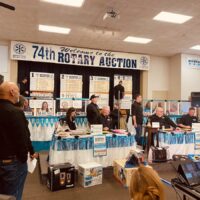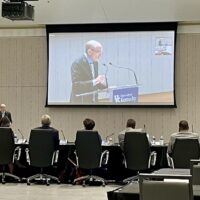Last week I was watching the Iowa women’s basketball team in their NCAA tourney game against West Virginia. I was in North Carolina visiting friends, and we had planned our dinner around game time because we wanted to see Iowa’s Caitlin Clark, the most exciting college player — on a men’s or women’s team — this year.
As the game progressed, my friend Dan asked what kind of player I had been in high school.
Without any exaggeration, I said, “Terrible.”
I could barely dribble and I probably never made a contested shot. I missed most of my free throws. I fouled out of many games. The fact that I could run fast was the only reason I started on my team. And maybe it helped that I was a jerk under the basket and could sometimes beat taller girls for a rebound. Did I mention our bench wasn’t deep?
Playing basketball in the late ‘70s at University Heights (even playing it badly) did help create an appreciation for the game. So for many years after I quit playing, I kept watching the sport — mostly men’s and women’s Division I college teams.
Of course, it’s almost impossible to live in Kentucky and not have a college team that is “your” team.
Mine was the Kentucky men’s team up until several years ago when most of the best players started departing after one season to go pro. It was impossible to get into a player’s story when they were on campus for just one year. And that was always my reason for following a team — to see how the players progressed and to get a grasp of their personalities, their quirks, their strengths and weaknesses. After four years, it felt like we actually knew them.
That’s why I lost interest in the era of “one and done” and didn’t pay much attention to UK until this year when I noticed two players too impressive to overlook. Senior transfer Antonio Reeves and freshman Reed Sheppard were reliably fun to watch. (And now we wait to learn if Sheppard will stay for his sophomore year.) I haven’t really become a diehard UK fan again, but Sheppard returning for a second year would make things more interesting, in my opinion.
During those years when I mostly checked out on college basketball, I was ignoring teams and players that could have held my interest if I’d just given them a chance. I’m talking about women’s basketball — an oversight that became glaringly clear in the past week as I started learning about Caitlin Clark.
Here I must confess that Hoptown Chronicle readers know the Sunday Brew column that I write is almost always a story with a strong Hopkinsville connection.
This one isn’t exactly that. It’s more of a nod to the last day of Women’s History Month, plus March Madness and my sincere interest in an excellent narrative — a well crafted story with a beginning, middle and end — about a phenomenal women’s basketball player.
The story, headlined “Caitlin Clark and Iowa find peace in the process,” is by ESPN senior writer Wright Thompson. You will not be sorry about making time to read this story. Thompson is the author of a highly regarded Kentucky book, “Pappyland: A Story of Family, Fine Bourbon and the Things That Last.” Hopkinsville readers would also be interested in his story about a former Kentucky New Era editor, Ken Mink.
If the story sparks your interest in Clark, you can watch her play Monday evening against Louisiana State University. It starts at 6 p.m. on ESPN. The winner will advance to the Final Four.
And if you think I really should have shared a local story for March Madness in this column, here’s one about Hopkinsville’s remarkable connection to a player recognized as introducing the jump shot to men’s college basketball.
March on, everyone.
Jennifer P. Brown is co-founder, publisher and editor of Hoptown Chronicle. You can reach her at editor@hoptownchronicle.org. She spent 30 years as a reporter and editor at the Kentucky New Era. She is a co-chair of the national advisory board to the Institute for Rural Journalism and Community Issues, governing board president for the Kentucky Historical Society, and co-founder of the Kentucky Open Government Coalition.




